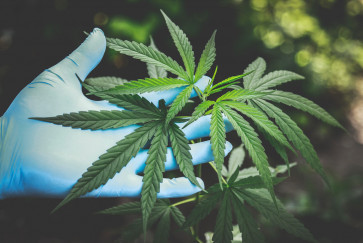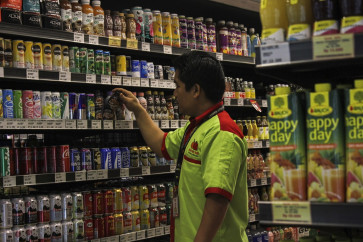Indians in Indonesia: A pinch of sugar
Dancers from the Jawaharlal Nehru Indian Cultural Center in Jakarta perform the Kathak dance during the celebration of Pravasi Bharatiya Divas (Indian Diaspora Day) on Monday night at JW Marriott Hotel in Jakarta
Change text size
Gift Premium Articles
to Anyone

D
span class="caption">Dancers from the Jawaharlal Nehru Indian Cultural Center in Jakarta perform the Kathak dance during the celebration of Pravasi Bharatiya Divas (Indian Diaspora Day) on Monday night at JW Marriott Hotel in Jakarta. The event was organized by the Indian Embassy in Jakarta.(JP/Arief Suhardiman)
At just over 0.1 percent of the total population, the Indian community of approximately 300,000 is like a pinch of sugar in Indonesia, sweetening and enhancing the culture and economy.
The Indians in Indonesia, both expatriates and people of Indian origin, are generally well educated, hardworking and law abiding, with high purchasing power.
Indonesia is a country where Indians are welcomed and respected for the knowledge, skills and values they add. Shared cultural roots and interest have linked the two nations for over two millennia, from Ramayana and Mahabharata to Bollywood and TV serials.
The roughly 7,000 expatriate Indians are involved in all industries and areas as entrepreneurs, IT professionals, consultants, financial managers, engineers, etc. Most advertising agencies and top positions at major luxury hotels have Indians at the helm. Entrepreneurs of Indian origin, as well as dominating the textile and finance industries, have a big stake in the movie business, from cinema screens to production houses.
“We tend to ignore, or worse, undervalue the contributions of ethnic-Indian Indonesians, who have as much claim to the nation as other historical immigrants, like the Chinese and the Arabs, and as the majority pribumi, or natives. In this era of rapid globalization, we can only benefit from sharing knowledge and information with both Indo-Indonesian citizens and residents and visitors, with whom we have so much in common, culturally and in development terms,” said Yuli Ismartono, from the TEMPO English magazine.
Indonesia is very similar to India with its large diverse, growing population, where traditional family values and ties are important. The spirit of Bhinneka Tunggal Ika or ‘unity in diversity’ resonates with both cultures and demonstrates tolerance and respect for other religions in both countries. Indians like to live in Indonesia.
Aarti Gadre, the founder of bookmyfit.com shares that, “As an Indian, I have experienced warmth and friendliness everywhere. Compared to the conditions back home, I find almost no road rage, more politeness and courtesy, safer living conditions, especially for women.”
Indians with strong community ties tend to group functions around religious festivals and events, and temples are a great venue for these community events. The Sri Mariamman Temple in Medan and Shiva temple in Jakarta are the most popular. Other temples are the Dewi Mandir, Sai Mandir and Gurudwara in Pasar Baru and Tanjung Priok, as well as the ISKCON Temple in Bogor.
More than 30 Indian restaurants are found just in Jakarta. Indian Restaurants can also be found in the major cities of Surabaya, Bandung, Medan, Surakarta and even Semarang. Bali has a growing Indian population, and to cater to the taste buds of the tourists, there are more than 15 Indian restaurants across Bali. The Indian Embassy has established cultural centers in Jakarta and Bali, where Yoga, classical music and dance are taught.
A long-term expat from the sub-continent, Rajah, shared that, in his opinion, “the expat Indians hardly interact with any other nationalities other or even outside their own language speaking group and the only time they break out is for supporting the Indian cricket team.”
He also observes that, “it is a pity that almost 95 percent of local Indians from Medan that I have met do not want to speak or try to teach their children their ethnic mother tongue, and this is not the case with the Indian community from Malaysia or Sri Lanka”.
Put many Indians together and they will resolve themselves into groups based on language, faith or common interests. At the last count, there were 40 Indian associations registered with the Indian Embassy, which include the India Club, the Indian Women’s Association, Indian regional associations, religious and faith-based associations, social and charitable organizations, schools, alumni associations, and the Indonesian chapters of Indian associations.
The oldest Indian association in Indonesia, Gandhi Seva Loka (formerly known as Bombay Merchants Association), was founded in 1947 by the elders of the Sindhi community with the primary aim of fostering the spirit of love, understanding and brotherhood and providing the best possible education to the children of the community. Gandhi Memorial Intercontinental School, Kemoyaran, Jakarta, is an international IB school run by Gandhi Seva Loka.
There is a Gurudwara Prabandhak Committee in Jakarta, and Sindhis as well as Sikhs are associated with Gurudwara activities. The association Yayasan Social Guru Nanak has also set up the Punjabi Gurmat School in Ciputat.
“There are several Indian-run preschools, schools and training centers in Indonesia that cater not only to Indians but also to the wider communities here,” says Shareen Ratnani, cofounder of Kiddie Planet Montessori.
India Club Jakarta has been in existence since 1981 with the purpose of representing the Indian community at large in Indonesia and maintaining, developing and promoting Indian cultural heritage amongst Indian families, children and other nationalities. A calendar of events includes cultural programs, Indian festivals, art exhibitions, Bollywood movies etc. The three main events organized by the club every year are Holi, Gala Deepawali eve and the Diwali Mela. Find out more at www.indiaclubjakarta.org
Other active associations include Indonesian Tamil Sangam, Kannada Sangha, Telugu Association, Kerala Samajam Agarwak Samaj and Amhi Maratha. Some are formed for specific occasions, such as Navaratri or Ganesh Utsav. Finally, there is the Indonesian chapter of the Institute of Chartered Accountants of India (ICAI).
Most associations participate in social work and charitable activities in Indonesia. The Sadhu Vaswani center is notable for its artificial limb program. Since 2007 it has provided 11,722 artificial limbs in Indonesia, made indigenously by local technicians in a dynamic venture of transfer of skills and knowledge from ‘The Jaipur Foot technology’.
Cricket, badminton and golf are the most popular sports among Indians living in Indonesia. The Jakarta Cricket Association has many teams and Indian players. Badminton groups are close-knit and have been playing together for many years, and the golfers have their own group known as Bunkers Golf Club.
An online community initiative, www.indoindians.com, brings together all the dispersed Indian groups and information of interest for the Indians in Indonesia on a single platform. It provides the facility for people to share their expertise and skills, at the same time stimulating interaction and connections.
With all the positive aspects of life in Indonesia for Indians, it is not a surprise that more Indians are seeking opportunities here.
“I have learned a lot of patience, smiling and happiness from this country. With so many traits in common, Indonesia and India should be working together harder than ever to further their mutual understanding,” thinks Geetika Sainani, a restaurateur.
___________________________
The writer is a committee member of India Club and owner of the websites www.infotech.co.id and www.indoindians.com.









